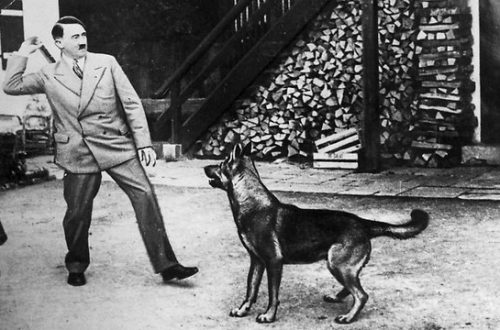When historians look back on this period of capitalist development I do hope they will understand what people were actually saying.
For if there is one feature of business in our era it is the determination of management to try the impossible and conceal job cuts in jargon, buzzwords and all manner of motivational bollocks.
At least the old mill owners and factory bosses, for all their faults, would simply tell people that they were out of work. “We just haven’t got the orders in, sorry lads”.
But a modern manager who simply told the blunt truth wouldn’t be a modern manager. I’m not talking about euphemisms like ‘downsizing’ either. Thats so passe and crucially also too close to actually mentioning the job losses.
No, the job losses, if mentioned at all, must be placed in the context of a grand historic project which far from being a sign that all is not well, actually prove the company is, well, you know, I better leave this to the experts:
I’ve come back to the BBC at a critical moment in its history: a moment which calls both for a spirit of conservation – for the nurturing and protection of some of the BBC’s greatest strengths and traditions – but also for a spirit of quite radical change.
Yes, he said “nurturing”. And the job cuts take place within a spirit of conservation.
….And content is what the BBC is all about. It’s a creative engine whose whole purpose is to convert public investment into wonderful programmes and content. Its programme-making heritage…… this heritage is what the on-demand world is crying out for. The future is heading towards, not away from, the BBC. But we can only fulfil that role if we embrace the kind of change which the digital age demands.
Embrace the change people in the on-demand world. Just don’t mention 2,900 jobs are going to be lost with over £300 million cuts. Mention change all the time, and the moving world and technology. Job losses are so modern.
But the most important part of the BBC’s unusual status in British public life is not the particular challenges it throws up for the accountability industry.
The accountability industry? Whatever happened to community?
Licence-payers in the rest of the UK find it difficult to understand why so much of the BBC is based in London and still seems to speak to them with such a metropolitan voice.
Translation: The people demand we move your job to Manchester. You don’t want to go? Oh well….
They want to be able to see what we do, to come into BBC centres all over the country and to contribute their thoughts and experiences on the web, radio, TV: I’ve seen people ranging from schoolchildren to grandparents doing this in projects from Glasgow to Havant, and it’s an extraordinary departure both for them and for us.
You don’t like the sound of this? You actually want to stop the kids and their grans having a day out? Hey, its your conscience.
There’s no need to change the BBC’s essential mission or its values. Reith’s phrase, about a public broadcasting enterprise dedicated to “the service of humanity in its fullest sense” still feels right. But to preserve that idealism, to go on delivering that mission to audiences worldwide, almost everything else does have to change. Leading the BBC at this moment does feel a little bit like skateboarding down a flight of stairs holding a Ming vase.
Ah yes, this is the good stuff. You like what we do? Unless we change it all, it won’t exist. And that lame attempt at humour is what managers always try to offer up at such times. It does have a message though – itmeans “You think waking up every morning thinking your job is on the line is tough? Imagine the crazy, wacky world of actually being paid a fortune to cut the jobs? It aint easy kid.”
The BBC effectively lost a year of planning because of the Gilligan-Kelly-Hutton crisis. As a result, a lot of challenges have hit at the same time and we’ve had to move quickly. The advantage is that we’ve been forced, both by events and by the debate around charter renewal, to think about our future in the round, and to develop an integrated view of how the BBC should navigate through the unpredictable but also opportunity-rich waters of the next 10 years.
Yes, opportunity-rich waters.
But what is that little passage actually saying? “Look, it isn’t my fault. Blame Gilligan or the government or whatever. But we’ve got to live with this now.”
The plan inevitably means a great deal of personal disruption in the BBC. The coming months will be difficult for many of my colleagues and they will often find it very hard to see that positive long-term vision for the BBC, as they tackle the immediate consequences of some of the reviews. But I am convinced that the right course adjustment now is better than dithering or putting off the evil day: sooner or later, even greater disruption, and perhaps worse, would follow.
Absolute textbook. If you are worried about your job you are really finding it very hard to see that positive long-term vision.
And if I don’t sack 3,000 people now, it will probably be worse. So, hey, I’m actually saving people’s jobs here.
I’m not arguing that the BBC doesn’t need to slim down a bit or be more efficient. And I’m certainly not against the idea of moving jobs to the regions. Having BBC Sport in the heartland of the nation’s sport makes some sense after all.
But I despise the way that modern managers (not at all limited to the BBC) feel the need to patronise their staff and to dress up job losses and other changes in this deceitful language.
No one ever falls for it anyway. Anyone who has been in meetings where managers spout this sort of garbage knows that when its over everyone sits down and translates the whole thing into English and then works out what it really means.
Anyway I’m in a time-restricted environment, I really should get back to engaging pro-actively with the client community.


